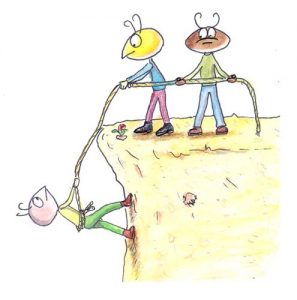Before considering what the key skills for HR practitioners in the future will be, it is essential to identify the future challenges for the HR service.
The Challenges For The Future HR
Talent Management & Succession Planning
Firstly, there needs to be a clear human capital development plan, identifying areas which could be affected by turnover or changes to the business. By planning in advance, the organisation is not left trying to cover gaps in key areas. This can also inform the organisation in terms of identifying future managers and leaders. Career routes can be identified and linked to an individual’s career aspirations. This development plan will also inform the learning and development function of HR.
Staff Motivation & Engagement
Added Value
HR needs to be able to demonstrate clearly how it adds value and impacts the business. However, more thorough data collection and analysis might cost more time for HR practitioners. Therefore, such steps need careful consideration and cost benefit analysis. Otherwise it may just add administrative burden.
Recruitment and Retention
Work Environment: “Employer of Choice”
Key Skills & Roles Needed to Meet the Challenges
In view of the areas identified above, the key competencies and roles for HR practitioners for the future are:
Communication, Interpersonal and Influencing Skills
Global Business Mindset
Analytical Skills
Thirdly, the HR practitioner of the future needs to be data literate and be able to question the figures and reports which they read. The data needs to be interpreted and an understanding of the wider picture is necessary to identify underlying factors which may be influencing what they read.
“Employee Advocate”

Strategic Partner
Credible, Professional Internal Consultant
Change Champion
The constant need to evaluate the effectiveness of the organisation results in the HR practitioner having to be a change champion – he/she needs to be knowledgeable about and able to execute successful change and change preparation strategies. Knowing how to link change to the strategic needs of the organisation will minimise resistance to change and employee misunderstanding or dissatisfaction. The HR practitioner contributes in an ongoing manner to the organisation. He constantly assesses the effectiveness of the HR function and develops timely change anticipation, change management and change alignment initiatives.
Trusted Coach
Finally, more senior HR practitioners have a role in enabling managers to be confident in people management, and this should be supported by individual coaching. Interpersonal skills feature in most of the work of an HR practitioner and these skills are paramount in giving feedback to the coachees. As a coach, an HR practitioner needs to understand the organisation and translate this knowledge into the coaching process to ensure the coachees development.


